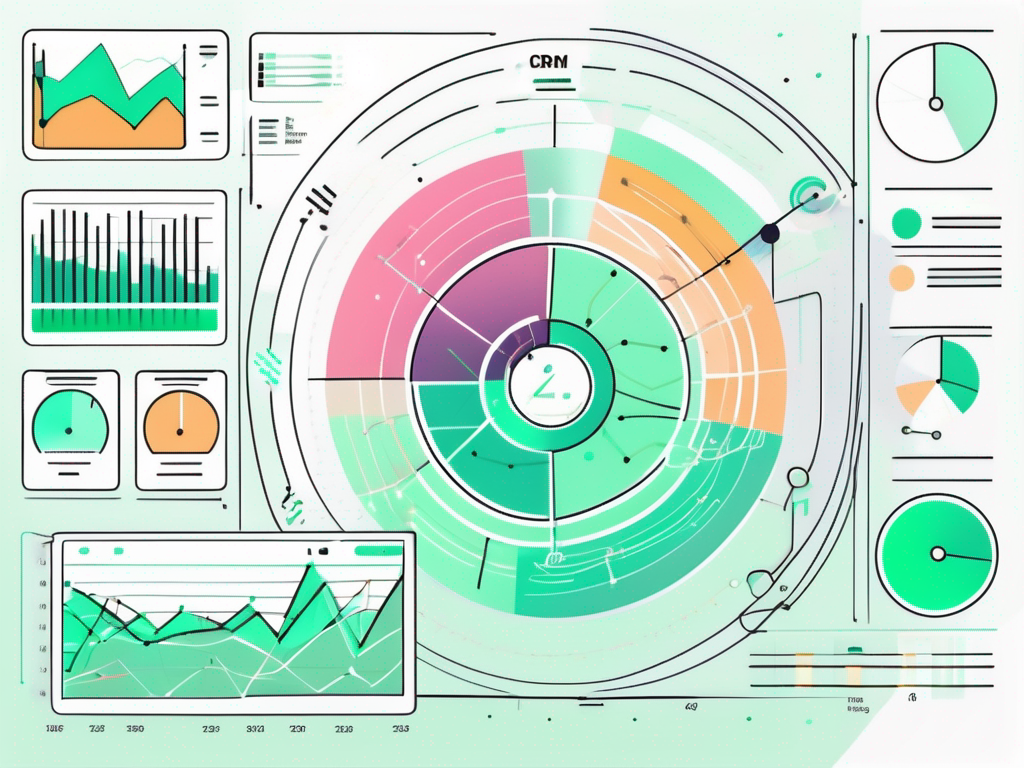.svg)
How to Use CRM for Effective First-Party Data Utilisation
.svg)

In today's data-driven world, businesses are constantly seeking ways to leverage data to enhance customer relationships and drive growth. Customer Relationship Management (CRM) systems have become indispensable tools in this endeavour, particularly when it comes to harnessing first-party data. First-party data, collected directly from customers, is a goldmine of insights that can be used to personalise marketing efforts, improve customer service, and ultimately, boost sales. Understanding how to effectively utilise this data through CRM systems is crucial for any business looking to stay competitive in the modern marketplace.
Understanding First-Party Data
What is First-Party Data?
First-party data refers to the information that a company collects directly from its customers. This data is gathered through various touchpoints such as website interactions, purchase history, customer feedback, and social media engagement. Unlike third-party data, which is acquired from external sources, first-party data is highly reliable and relevant, as it is collected directly from the source.
One of the key advantages of first-party data is its accuracy and specificity. Since it is collected directly from customers, it provides a clear and detailed picture of customer behaviour and preferences. This makes it an invaluable asset for businesses looking to tailor their marketing strategies to meet the unique needs of their audience.
The Importance of First-Party Data
In an era where data privacy is of paramount concern, first-party data offers a compliant and ethical way to gather customer insights. With increasing regulations such as the General Data Protection Regulation (GDPR), businesses are under pressure to ensure that their data collection practices are transparent and respectful of customer privacy. First-party data, being collected with customer consent, aligns perfectly with these requirements.
Moreover, first-party data allows businesses to build stronger relationships with their customers. By understanding customer preferences and behaviours, companies can deliver personalised experiences that resonate with their audience, fostering loyalty and trust. This, in turn, can lead to increased customer retention and lifetime value.
Leveraging CRM Systems for First-Party Data
Integrating CRM with Data Collection
CRM systems serve as the central hub for collecting and managing first-party data. By integrating CRM with various data collection channels, businesses can ensure that all customer interactions are captured and stored in a single, unified platform. This integration enables a comprehensive view of the customer journey, allowing for more informed decision-making.
For instance, integrating CRM with a company's website can provide insights into how customers interact with different pages, what products they are interested in, and where they may encounter obstacles in the purchasing process. Similarly, linking CRM with email marketing platforms can track customer engagement with campaigns, helping to refine messaging and improve conversion rates.
Data Segmentation and Analysis
Once first-party data is collected, CRM systems can be used to segment and analyse this information. Segmentation involves dividing customers into distinct groups based on shared characteristics or behaviours. This allows businesses to tailor their marketing efforts to specific segments, increasing the relevance and effectiveness of their campaigns.
CRM systems offer powerful analytical tools that can uncover patterns and trends within the data. By analysing customer behaviour, businesses can identify opportunities for upselling or cross-selling, detect potential churn risks, and optimise their overall marketing strategy. This data-driven approach ensures that resources are allocated efficiently, maximising return on investment.
Personalisation and Customer Engagement
Personalisation is a key benefit of utilising first-party data through CRM systems. By understanding individual customer preferences and behaviours, businesses can deliver personalised experiences that resonate with their audience. This could include tailored product recommendations, customised marketing messages, or personalised customer service interactions.
CRM systems enable businesses to automate personalisation at scale. For example, automated email campaigns can be triggered based on specific customer actions, ensuring that the right message reaches the right person at the right time. This level of personalisation not only enhances customer engagement but also drives conversions and fosters brand loyalty.
Best Practices for First-Party Data Utilisation
Ensuring Data Accuracy and Quality
To maximise the effectiveness of first-party data, it is essential to ensure that the data collected is accurate and of high quality. This involves regularly cleaning and updating the data to remove duplicates, correct errors, and fill in missing information. CRM systems can automate many of these processes, reducing the risk of human error and ensuring that the data remains reliable.
Additionally, businesses should establish clear data governance policies to maintain data integrity. This includes defining roles and responsibilities for data management, implementing security measures to protect sensitive information, and ensuring compliance with relevant regulations. By prioritising data accuracy and quality, businesses can make more informed decisions and achieve better outcomes.
Fostering a Data-Driven Culture
Effective utilisation of first-party data requires a cultural shift towards data-driven decision-making. This means fostering an organisational culture where data is valued and utilised across all levels of the business. Leadership should champion the use of data, encouraging employees to leverage insights for strategic planning and problem-solving.
Training and education are also crucial in building a data-driven culture. Employees should be equipped with the skills and knowledge needed to interpret and act on data insights. This could involve providing training on CRM systems, data analysis techniques, and data privacy regulations. By empowering employees with data literacy, businesses can unlock the full potential of their first-party data.
Continuous Improvement and Innovation
The landscape of data utilisation is constantly evolving, and businesses must be prepared to adapt and innovate. This involves continuously monitoring and evaluating the effectiveness of data-driven strategies, identifying areas for improvement, and exploring new technologies and methodologies.
CRM systems can facilitate this process by providing real-time insights and analytics. By regularly reviewing performance metrics and customer feedback, businesses can identify trends and opportunities for innovation. This proactive approach ensures that businesses remain agile and responsive to changing customer needs and market conditions.
Conclusion
Utilising first-party data through CRM systems offers a wealth of opportunities for businesses to enhance customer relationships, optimise marketing strategies, and drive growth. By understanding the value of first-party data and implementing best practices for its utilisation, businesses can unlock valuable insights that inform decision-making and deliver personalised experiences. As data privacy regulations continue to evolve, first-party data provides a compliant and ethical way to gather customer insights, ensuring that businesses remain competitive in the modern marketplace.
Embracing a data-driven culture, prioritising data accuracy, and continuously innovating are key to maximising the potential of first-party data. By leveraging CRM systems effectively, businesses can transform raw data into actionable insights, fostering stronger customer relationships and achieving long-term success.
Related Posts
Let's
Let’s discuss how we can bring reinvigorated value and purpose to your brand.







.svg)